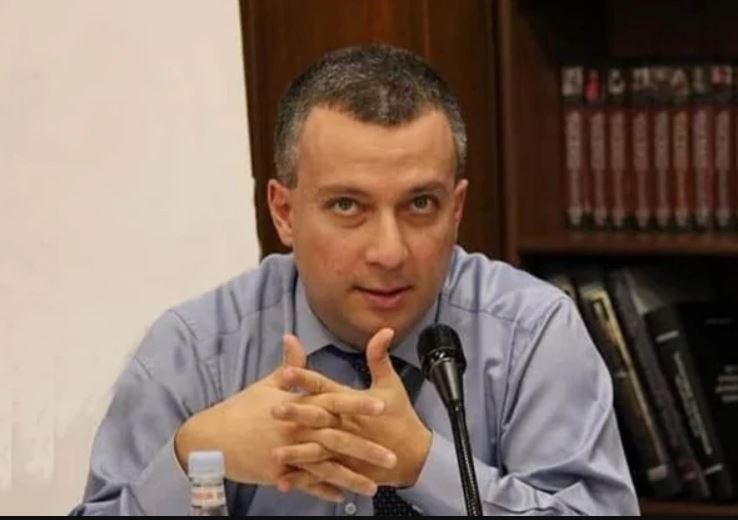by Benyamin Poghosyan
The end of the year is traditionally a time for reflection and forecasting, which extends to geopolitics and foreign policy. Armenia–Azerbaijan relations are no exception. Since the First Nagorno-Karabakh War ended in 1994, experts, academics, and politicians have sought to assess and forecast the trajectory of these relations. Such efforts have gained momentum during active negotiations, as seen in the discussions of Key West (2001) and Kazan (2011). With negotiations ongoing since the 2020 Nagorno-Karabakh War to finalize a peace agreement, year-end speculations about the coming year’s developments are unsurprising. The author believes that Armenia and Azerbaijan are unlikely to sign a peace agreement soon.
Currently, the situation is intriguing. Both sides claim substantial progress in peace talks. At the December 5 Organization for Security and Cooperation in Europe (OSCE) Ministerial Council, Armenia’s foreign minister announced that the preamble to the peace agreement text and 15 out of its 17 articles had been finalized. The Armenian prime minister later stated that 90% of the text was agreed.
Read also
However, according to the Azerbaijani state-affiliated think tank AIR Center, at least three contentious issues remain unresolved: the presence of the European Union (EU) mission in Armenia, constitutional and legal changes in Armenia, and the withdrawal of Armenia’s legal cases against Azerbaijan in international courts. Baku has also proposed two other preconditions to any peace agreement. These include dissolving the OSCE Minsk Group and establishing a “Zangezur corridor” free of Armenian control.
Despite progress, Azerbaijan’s ever-changing preconditions make the signing of a peace agreement elusive. In 2024, Armenia offered concessions, such as a phased withdrawal of EU observers from the delimited border areas and a readiness to withdraw legal cases against Azerbaijan post-agreement. Armenia has also initiated constitutional reforms aimed for completion in 2027 and indicated its openness to dissolving the OSCE Minsk Group after an agreement is signed. Yet Azerbaijan insists these steps must occur before a peace deal.
Azerbaijan’s approach, characterized by the steady addition of preconditions and rebuke of any Armenian offer, casts doubt on the likelihood of an agreement soon. Strong external pressure on Azerbaijan could shift its stance, though efforts by the US, the EU, and partly by Kazakhstan in 2023 and 2024 have largely failed. Whether the Trump administration will prioritize this issue remains unclear, especially given other foreign policy focuses, including China, the Russia–Ukraine War, and Iran. Meanwhile, Azerbaijan’s President Ilham Aliyev sabotaged the Brussels format after the military takeover of Nagorno-Karabakh in September 2023 by refusing to go to Granada and Brussels, and most probably, the Brussels format ended with Charles Michel’s departure from the European Council Presidency.
Russia’s potential leverage to facilitate the signing of a peace agreement depends on the resolution of the Ukraine War on terms favorable to or at least neutral for Moscow. Russia may also seek to use the regional 3+3 format as an Armenia–Azerbaijan negotiation platform. Meanwhile, other actors, including Turkey, Iran, Israel, France, India, and China, lack either the leverage or the strategic interest to compel Azerbaijan to sign an agreement. Thus, as we approach 2025, the author believes that a new geopolitical configuration following a historical year of election campaigns increases the risk of a new escalation.
Two types of escalation may occur. The first involves small to medium-scale incidents, ranging from isolated border skirmishes to active hostilities lasting several days, potentially aimed at seizing additional Armenian territory — similar to the events of September 2022. Recent Azerbaijani state-affiliated media reports have alleged that Armenia is preparing for an attack on Azerbaijan; this allegation is probably being used to pave the way for a preemptive strike on Yerevan and also suggests that Baku is likely laying the groundwork for escalation in 2025. It should be emphasized that Armenia has no intention of attacking Azerbaijan, as Prime Minister Nikol Pashinyan has repeatedly stated. Thus, the likelihood of small to medium-scale escalations in 2025 is moderate to high.
The second scenario is a large-scale escalation intended to forcibly open the “Zangezur corridor,” potentially targeting either the southern or northern parts of Armenia’s Syunik region or the Vayots Dzor region. Several factors that restrained Azerbaijan in 2024, including the 2024 United Nations Climate Change Conference (COP29) and senior Iranian officials’ repeated statements that they will intervene if there is a threat to Armenia’s border with Iran, will either be absent or diminished in 2025. Iran’s perceived failure to prevent the erosion of its influence in Syria, coupled with the potential return of the US “maximum pressure” campaign against Tehran, may decrease the risk of a strong reaction by Tehran in case of Azerbaijani incursion in southern Armenia. Other, broader geopolitical considerations — such as US–Russia relations, the outcome of the war in Ukraine, and the Trump administration’s policies in the South Caucasus — will likely play a decisive role, too. These dynamics remain too uncertain to predict accurately. While the probability of large-scale escalation in 2024 was low, in 2025 it is expected to rise slightly, ranging from low to moderate.
In this context, the Armenian government must vigilantly monitor shifts in the global and regional balance of power and the intricate interplay of relations among Russia, the US, the EU, Turkey, and Iran. Suppose Russia gains additional influence in the region as a result of the stopping of the war in Ukraine, while Georgia–West relations continue to deteriorate. In that case, recalibrating Armenia’s Western-oriented foreign policy diversification may be necessary to avoid a situation in which Armenia is the only state in the region calling for an increased Western presence. This situation may result in a consensus among the region’s states to pressure Armenia to change its position. A new escalation by Azerbaijan might be perceived as an option to inflict pressure.




















































